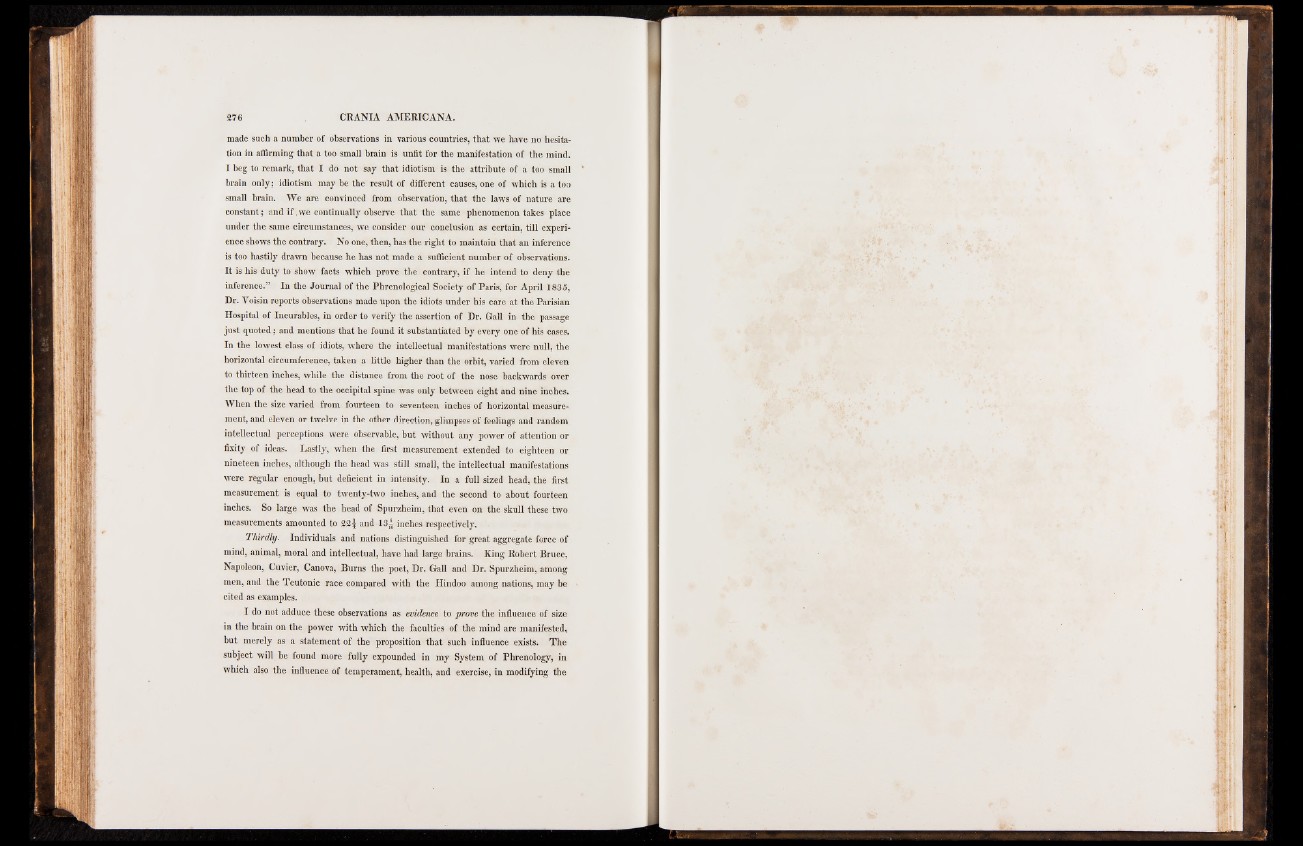
made such a number of observations in various countries, that we have no hesitation
in affirming that a too small brain is unfit for the manifestation of the mind.
I beg to remark, that I do not say that idiotism is the attribute of a too small
brain only; idiotism may be the result of different causes, one of which is a too
small brain. We are convinced from observation, that the laws of nature are
constant; and i f ,we continually observe that the same phenomenon takes place
under the same circumstances, we consider our conclusion as certain, till experience
shows the contrary. No one, then, has the right to maintain that an inference
is too hastily drawn because he has not made a sufficient number of observations.
It is his duty to show facts which prove the contrary, if he intend to deny the
inference.” In the Journal of the Phrenological Society of Paris, for April 1835,
Dr. Voisin reports observations made upon the idiots under his care at the Parisian
Hospital of Incurables, in order to verify the assertion of Dr. Gall in the passage
just quoted; and mentions that he found it substantiated by every one of his cases.
In the lowest class of idiots, where the intellectual manifestations were null, the
horizontal circumference, taken a little higher than the orbit, varied from eleven
to thirteen inches, while the distance from the root of the nose backwards over
the top of the head to the occipital spine was only between eight and nine inches.
When the size varied from fourteen to seventeen inches of horizontal measurement,
and eleven or twelve in the other direction, glimpses of feelings and random
intellectual perceptions were observable, but without any power of attention or
fixity of ideas. Lastly, when the first measurement extended to eighteen or
nineteen inches, although the head was still small, the intellectual manifestations
were regular enough, but deficient in intensity. In a full sized head, the first
measurement is equal to twenty-two inches, and the second to about fourteen
inches. So large was the head of Spurzheim, that even on the skull these two
measurements amounted to 22 £ and -13J inches respectively.
T h ird ly . Individuals and nations distinguished for great aggregate force of
mind, animal, moral and intellectual, have had large brains. King Robert Bruce,
Napoleon, Cuvier, Canova, Burns the poet, Dr. Gall and Dr. Spurzheim, among
men, and the Teutonic race compared with the Hindoo among nations, may be
cited as examples.
I do not adduce these observations as evidence to prove the influence of size
in the brain on the power with which the faculties of the mind are manifested,
but merely as a statement of the proposition that such influence exists. The
subject will be found more fully expounded in my System of Phrenology, in
which also the influence of temperament, health, and exercise, in modifying the